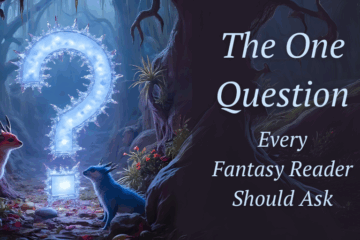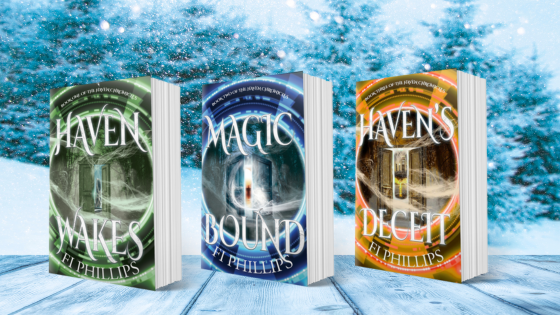5 Ways That Magic Bound’s Original Ending Would Have Changed Everything

When I originally wrote the second book of the Haven Chronicles, I envisioned a very different ending to the one that appeared in the published novel. It was darker, more isolating for the main characters, and left readers guessing how Steve and the darkling could possibly escape to safety. I know now that it wasn’t the ending that the book deserved or that readers would have enjoyed, but I was still learning how to construct a decent book plot and create a successful series. To be fair, I continue to learn with each novel I write.
So here are the five ways that the original version of Magic Bound would have changed the entire Haven Chronicles series.
Steve and Bodrn are on their own
In the original version of Magic Bound, Blessing has been taken prisoner by the Council and Hartley is presumed dead in an explosion. Steve and Bodrn are on their own without the wisdom and experience of the elderly magical to rely on. Trapped in a fading pocket universe, they only have their own instincts to rely on.
Inside the cave house, it looked as if nobody had lived there for a lifetime or two, except for the fire which still burned in the hearth. There was no furniture, no smell of freshly made loukoumades, and no doorways other than the one they had entered through.
The Council are the villains
I don’t want to drop any spoilers for anyone who hasn’t read Magic Bound so I won’t mention who the baddies are in the published version. Originally, though, the villains were the Council who rules over the magicals. Or rather three members of the Council: Blaike Harn, Jonah Ledwitch, and Naomi Onai. This would have meant that Steve and Bodrn would be on the run from the powers-that-be for the rest of the series.
The book ended on a cliffhanger
I originally ended Magic Bound on a cliffhanger. I was still learning how to construct a novel back then and it seemed like an intriguing thing to do. My publisher didn’t share my enthusiasm though and when I looked into the popularity of cliffhanger endings, I realised that it would annoy most readers. It also ended the novel in a mood of despair, with just the tiniest glimmer of hope. I’m not sure how many readers would have wanted to know what happened next.
With a held breath, he drew a chalk line up one side of the door, over the top, and back down the other side, then he dropped the chalk back into his pocket.
“Here we go.” He knocked on the door one, two, three times, and stood back.
Please be there, please be there, please be there.
Nothing happened.
Please, please, please, Hartley. I’ll never complain about your cooking again.
With a clunk and a creak, the door swung open.
Steve didn’t make any difference
In the original ending, Steve might as well have not been there. He had no role to play other than being someone his friends would fight to defend. He was simply along for the ride. This would have meant for a massive learning curve and leap in Steve’s character development in book three. Instead, his character arc across the three novels (and continuing into book four) feels natural and earned.
Steve stood in the middle of the room, eyes on the ground. He had never felt so alone, so small, or so useless in his entire life.
No plan to find Steve’s parents
Without giving too much away, I can tell you that Magic Bound ends with Steve deciding to find his missing parents. In the original version though, there wasn’t the slightest glint of a thought in Steve’s head about Mary and Elijah Haven. It would have taken another novel (or maybe two) to start that storyline.
*
Looking back, changing Magic Bound’s ending was one of the best creative decisions I’ve made as a writer. What started as feedback from my publisher about cliffhangers led me to completely reimagine not just how the book ended, but Steve’s entire character journey, the series villains, and the overarching plot about his missing parents. The published version gave Steve control over his own story, provided readers with a satisfying conclusion while still leaving them wanting more, and set up the natural progression that carries through Haven’s Deceit and into book four. Sometimes the most important writing lesson is knowing when to let go of your original vision to make way for a better story.


